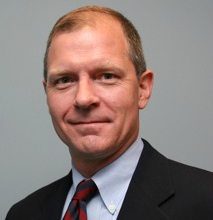Meet Paul Christman, the President and Chief Executive Officer of Quest Software’s public sector, an information technology company based in Rockville, MD. Throughout his career, Christman has built teams efficiently and successfully in order to meet his companies goals and quotas. “I’m a firm believer that hard work pays off and that diligence is rewarded,” he stated.
WashingtonExec recently interview Christman about the future of IT Technology, cybersecurity terrorism and how to remain successful in a unstable economy. He offers a sense of hope and evidence that things are not as bad as they may seem.
 WashingtonExec: What aspect of your job do you find most interesting and why?
WashingtonExec: What aspect of your job do you find most interesting and why?
Paul Christman: I would have to say that the individuals I work with on a daily basis are the most interesting aspect of my job. Throughout my career, I’ve been tasked with building teams that can efficiently and successfully meet goals and quotas. The most essential part of any team is the individuals that comprise it. I’ve had the pleasure of working with some really great people who have made my work both interesting and fulfilling.
WashingtonExec:What can you say about the potential advantages and disadvantages in IT technology investments?
Paul Christman: The government is always looking for ways to streamline processes and reduce spending. When properly managed, technologies that are tailored to meet the needs of public sector organizations are one of the best ways to do that. Even more importantly, efficient IT has become essential for bringing to life key policy initiatives that affect the everyday lives of Americans. For example, The Obama Administration’s cornerstone Open Government Directive came to life in the past year and will continue to serve as the bedrock for sweeping changes in the coming years. The directive’s three guiding principles are transparency, participation and collaboration. At its heart, the policy seeks to elevate citizen engagement and make government work smarter, better, and more efficiently. This would not have been possible without the adoption of technologies that support data sharing and citizen engagement.Regarding potential disadvantages, any technology investment that isn’t managed properly and fully utilized could become a liability. Many of the government’s legacy technologies were developed specifically for each agency and include expensive features that are now obsolete and irrelevant to the agency’s evolving mission.The federal government is adopting a more frugal approach to IT procurement in order to realize the performance gains achieved by the private sector. This new strategy involves leveraging existing private sector technologies that have been modified to meet the government’s strict security and functionality requirements.
WashingtonExec: Cybersecurity terrorism poses a major threat to the government. What strategies do you have when it comes to protecting the government from terrorists that could attack us from anywhere in the world?
Paul Christman: A recent report that came out of the U.S. Government Accountability Office(GAO) reveals that information security weaknesses continue to rise in spite of the federal government’s efforts to implement cybersecurity improvements. The report goes on to state that agencies have experienced a wide range of incidents involving computer intrusions, privacy breaches and data loss or theft – reiterating the need for improved security practices. Due to the increase in the sophistication of cyber attacks, the government is being pushed to improve agencies’ situational awareness and move toward behavioral detection and predictive analysis for a more proactive effort to prevent threats. Another strategy we employ focuses on preventing insider attacks. Not all attacks on government systems come from an external source or are even malicious. Many times, cyber attacks are results of irresponsibility and negligence. Therefore, agencies need to not only maintain bullet-proof firewalls and blocking systems, but to secure the infrastructure from the inside out. Identity and access management is essential for agencies to develop an effective cyber shield.
WashingtonExec: After your career is done with Quest what legacy do you hope to leave?
Paul Christman: I would hope to leave a legacy that encompasses the core values that have distinguished my career path. I’m a firm believer that hard work pays off and that diligence is rewarded. I’d like to inspire others to stay the course and remain both persistent and aware of opportunities that may lead them in the right direction. I would also encourage others to find their passions and pursue them wholeheartedly.
WashingtonExec: What are Paul Christman’s top five keys to success?
- Work hard at everything you do because it will pay off in the end
- View work challenges as opportunities rather than burdens
- Realize that some choices cannot be 100% rational
- Try to remain open minded about “non-linear career path” options
- Don’t leave everything to fate or chance – communicate your career goals and desires


